Top doctor fears hard border could put children at risk
- Published
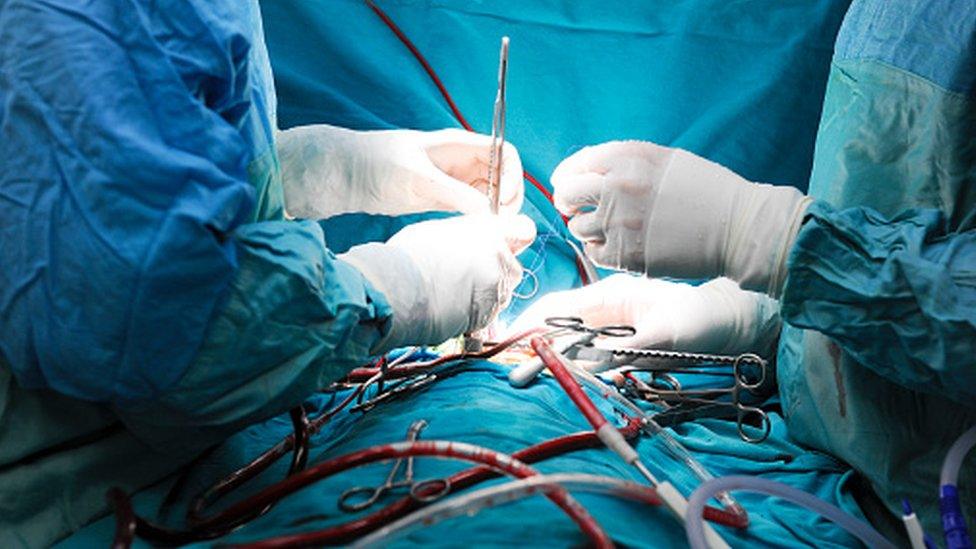
Heart surgery on children from Northern Ireland is regularly carried out in Dublin
A top medic fears a no-deal Brexit could seriously impact the treatment of children with congenital heart disease.
The warning came from a paediatric cardiologist who said a hard border risked the swift transfer of seriously ill children needing emergency care.
Dr Brian Craig warned that even if the UK and European Union struck a deal further assurances would be required.
However, the Department of Health insisted it doesn't envisage any major disruption to cross-border services.
"A hard border could risk the ability to transfer children smoothly between Belfast and Dublin," said Dr Craig.
Parents Edel and Barry McInerney, whose son Ffion was born with a heart defect in 2017, are also concerned.
In 2018 the couple had to follow a blue light ambulance as it travelled in the middle of the night from Belfast to Dublin with their seriously ill son.
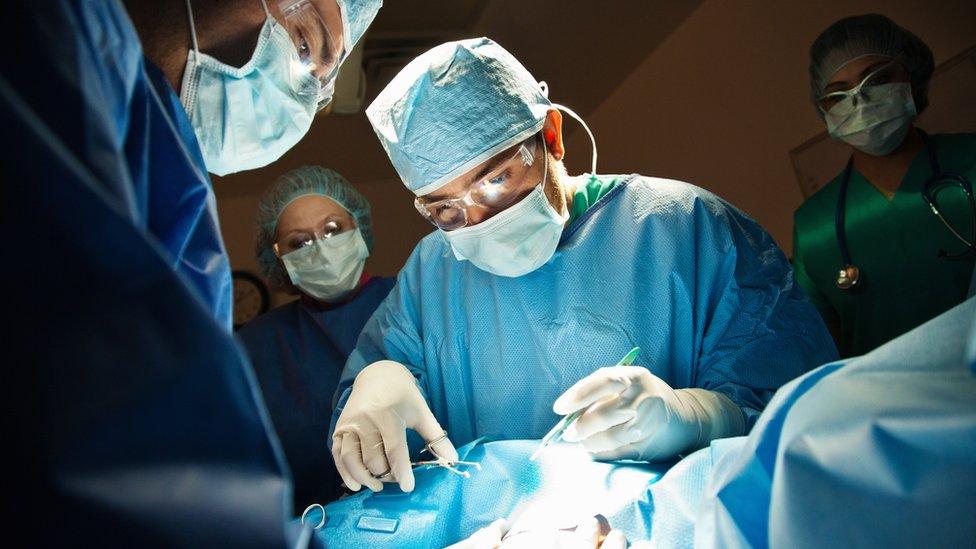
Spinal surgery for unborn babies with the birth defect
Speaking to the BBC from their home in County Down, they said the cross-border paediatric service saved their son's life.
"The fact Ffion got an ambulance with a full team of doctors and nurses and got across that border straight away and had a smooth transition to Crumlin in Dublin within an hour and 10 minutes was so important. We were able to follow them down," said Edel McInerney.
"At the time we just did it but looking back if there had been any impediment to that journey or to his care... it could have been a life and death situation."
Dr Craig, who worked for more than 30 years at the Royal Belfast Hospital for sick children and is now retired, also praised the current cross-border service.
He was speaking as the Children's Heartbeat Trust made a submission to the Northern Ireland Affairs Committee's inquiry into the UK's withdrawal agreement and no-deal planning.
As well as potential delays at the border the CHT which represents families of seriously ill children said there were also concerns about finding and retaining staff, accessing new and developing medicines and recognising mutual medical qualifications across jurisdictions.
Dr Craig explained: "Recruitment and retention of clinical staff is already a serious problem in the NHS and this has been aggravated by the UK's upcoming departure from the EU.
"This problem is even more acute in specialist areas like paediatric cardiology where we rely on specially-trained practitioners.
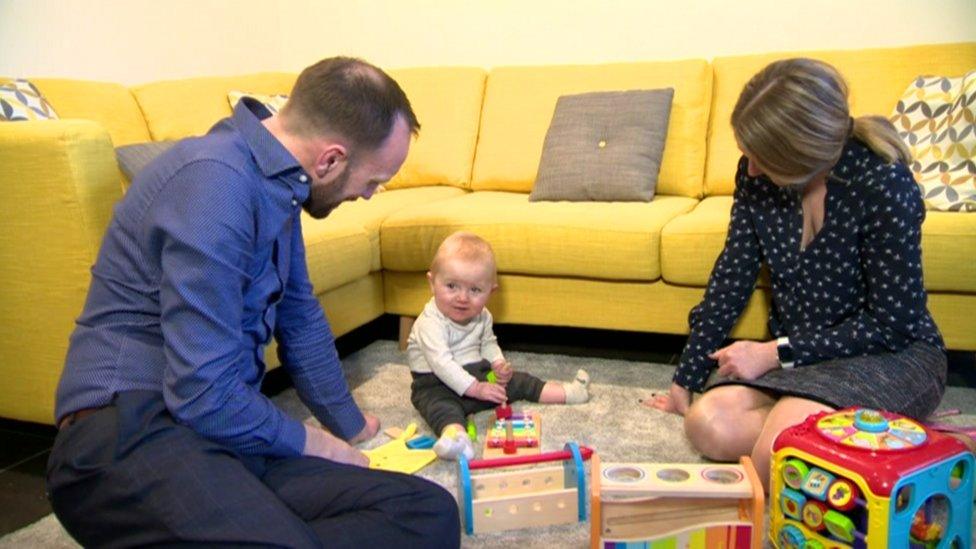
Edel and Barry McInerney with their son Ffion who was born with a heart defect in 2017
"This problem could be exacerbated by any future visa regime change, especially in a situation where a doctor or nurse was permitted to work in Belfast under the UK regulations but could not work in Dublin under EU regulations.
"Such an impediment on ability of specialist doctors and nurses to work North and South cannot be allowed to happen."
A spokesperson said the Department of Health was considering "appropriate business continuity, preventative and contingency measures", as delivering health and social care service to the public was the department's number one priority.
"The Department's EU exit priorities include maintaining cross-border collaboration and access to care, such as the all-island Congenital Heart Disease (CHD) Network and the North West Cancer Centre (NWCC) at Altnagelvin, which have been agreed and delivered through the NSMC structures established under the Good Friday Agreement.
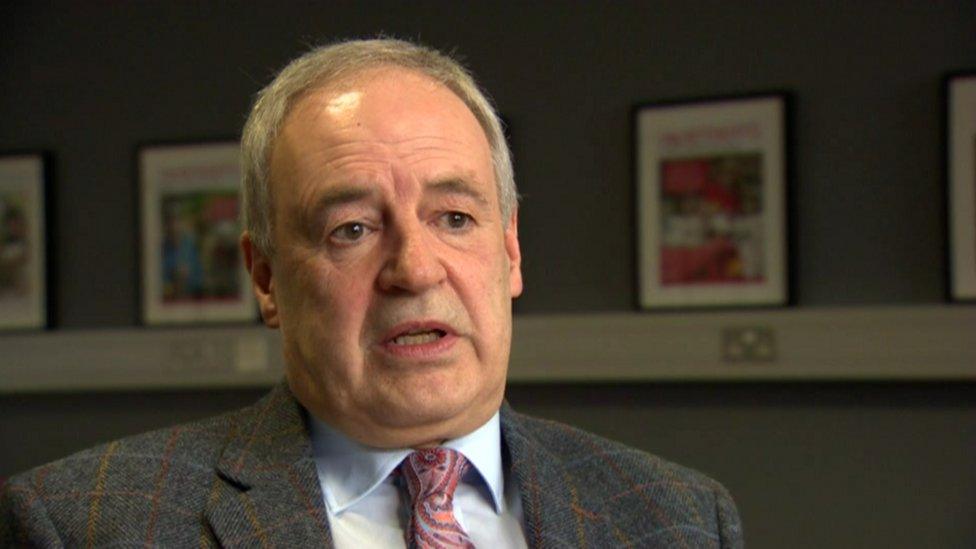
Dr Brian Craig fears the impact of a no-deal Brexit on treatment options for children with heart disease
"These two initiatives demonstrate the clear benefits of cross-border collaboration in healthcare in meeting population health needs, improving access to care and patient outcomes in ways that exceed the respective capacity of each jurisdiction.
"The Department will continue to monitor the outcome of the UK Government's EU exit negotiations and shall discuss any potential impact on cross-border acute services with DHSC and the Department of Health (RoI) through our existing joint oversight arrangements."
Ffion, who was born 10 weeks prematurely, had no sternum and remained in hospital for several months.
Her father Barry said it was the unknown aspects about Brexit and its potential impact on the health service that was causing them sleepless nights.
"My big concern is just the absolute lack of any certainty at all," he said.
"It's just the unknown about what Brexit is bringing down the line for the health service.
"There has been a lot of talk about business and agriculture and so on, but little talk about the health service and that's what is causing us anxiety."
- Published4 July 2016
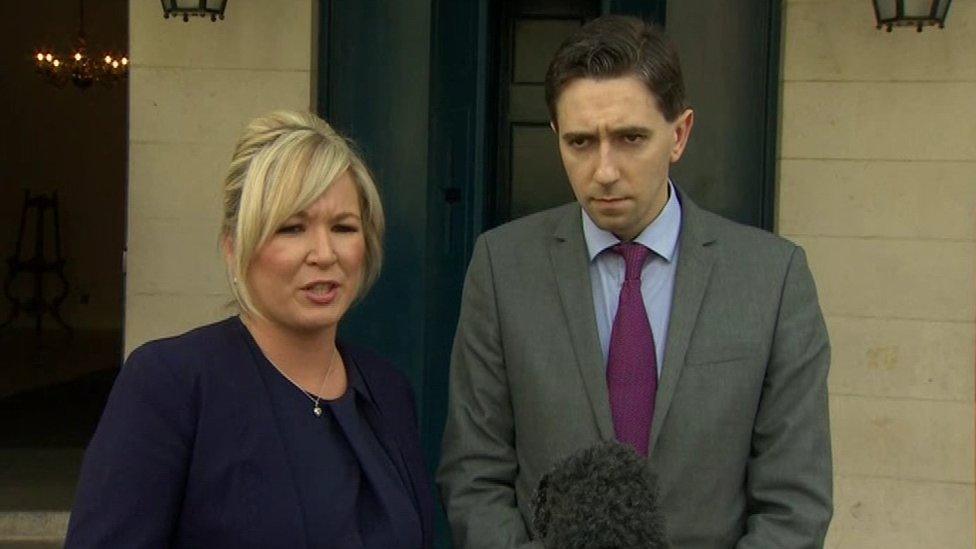
- Published3 March 2015
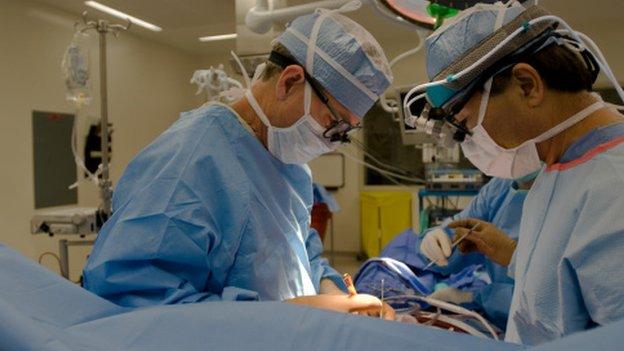
- Published14 October 2014

- Published14 October 2014
